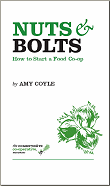Damian Hinds MP explains why it will soon become less difficult to finance the ‘co-operative’ business model
 Getting together the capital for any new venture is always a significant challenge, whether it is being run on a company or a co-operative model. But the co-operative business model – and credit union model in particular – does bring with it key advantages; it is the people benefiting from the services who will invest in it, and investments don’t need to be on a large scale when many people come together with a common purpose. Membership is restricted to people within a ‘common bond’, which can be those living or working in the same area, working for the same employer or belonging to the same association.
Getting together the capital for any new venture is always a significant challenge, whether it is being run on a company or a co-operative model. But the co-operative business model – and credit union model in particular – does bring with it key advantages; it is the people benefiting from the services who will invest in it, and investments don’t need to be on a large scale when many people come together with a common purpose. Membership is restricted to people within a ‘common bond’, which can be those living or working in the same area, working for the same employer or belonging to the same association.
That is why credit unions have successfully delivered services to communities around the world for over 150 years, and why 184 million people in 97 countries use a credit union for their day-to-day financial needs.
As financial co-operatives are owned and controlled by their members, credit unions have no outside shareholders to pay and therefore exist only to meet the needs of their members. Members elect volunteers on the boards on a first past the post basis.
All credit unions provide a safe haven for savings and affordable credit to members with increasing numbers providing a wider range of services including current accounts, ISAs, insurance and even mortgages.
Credit unions in other parts of the world (in some countries 30 or even 50 percent of the population use their services) – have significant advantages over those in Britain, with less restrictive legislation and an increased level of collaboration. As well as a good legal framework, they have the advantages of better efficiency, co-ordinated operations and economies of scale.
In Britain, similar and long planned for changes will be coming into effect later this year. This will help make the British credit union sector a real force in the financial service sector.
Changes will also allow credit unions to extend their services to new groups. This could include tenants of a housing association or employees of a national company. Payroll deduction from a large employer is a great way for credit unions to bring in savings and it is an easy and convenient way for people to gain a savings habit, something the government is trying to encourage.
Credit unions can usually only lend out from members savings deposits with principal income generated from interest payments on loans. Currently membership is restricted to individuals, but businesses, religious groups and social enterprises will be among the groups able to invest in credit unions once the law changes. As well as helping to increase the supply of affordable credit in a community by bringing in much bigger deposits, this will mean credit unions can also support local community organisations. As safe and regulated financial services providers, credit unions are ideally placed to support local people working to improve their community and could play a key role in the Big Society Bank.
The recently announced £73 million modernisation fund from the Department for Work and Pensions includes some funds which, subject to successful feasibility studies, will be invested in a central back office and shared banking platform for the sector. This opens up the exciting prospect of credit union services becoming available through the Post Office network, bringing services closer for millions more people.
Thousands of credit union volunteers are already using the co-operative business model to attract investment from members and help those members get the financial services they need. With the right legislation and the right infrastructure, credit unions will attract increasing amounts of investment from individuals and organisations.
This will help many more people to access more services, safely and ethically, while retaining the benefits at the heart of communities and workplaces around the country.
To find out about more credit unions visit www.abcul.coop.



